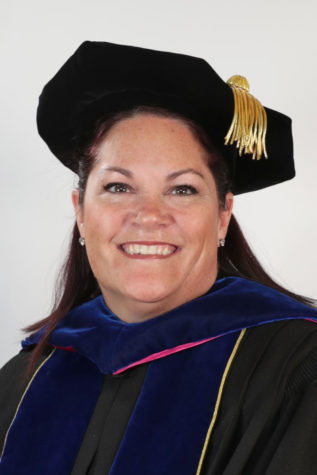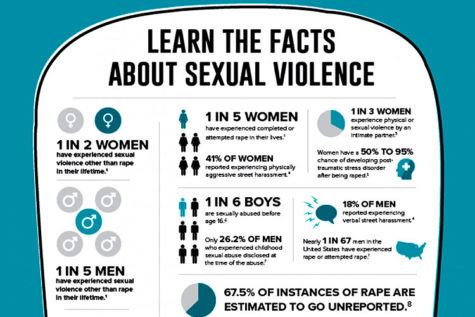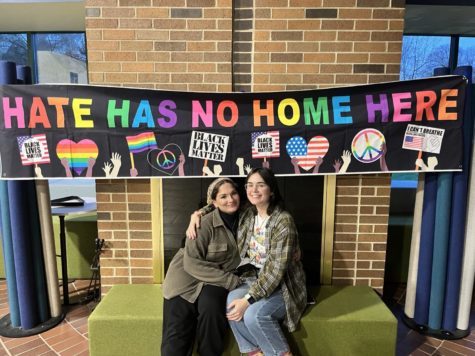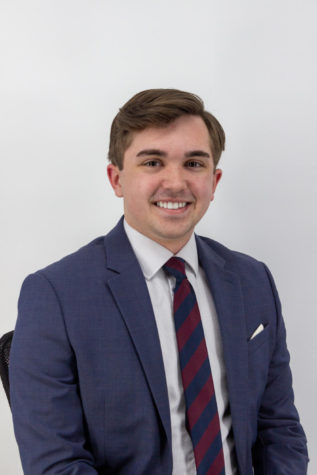LGBTQ research presented at Hurst
September 26, 2018
On Sept. 21, Mercyhurst hosted Matthew Capriotti, Ph.D., for a presentation on health disparities in the LGBTQ community.
Capriotti is an assistant professor at San Jose State University and researches LGBTQ health issues.
Matthew Weaver, Ph.D., who is an associate professor of Psychology at Mercyhurst is an old friend of Dr. Capriotti. It was Weaver who helped bring Capriotti to campus for this talk.
For Weaver, this talk had strong social implications.
“Though we have a strong LGBTQ community on campus, members of that community are still underrepresented in many aspects in our culture and in our life,” Weaver said.
Capriotti’s presentation detailed his academic journey from pediatric oncology to behavioral psychology, before exploring his current research on health disparities for the LGBTQ community.
Capriotti began his talk by highlighting many issues within the American health-care system that perpetuate inequalities between the LGBTQ community and the remainder of society.
In addition to the unfair and discriminatory historical treatment of the community, the most important cause of the disparities is the disregard that medical professionals sometimes have for connections between sexual orientation or gender identity and one’s overall health. If doctors fail to note patients’ sexual orientation or gender identity, it could lead to them being ignorant of what conditions their patients face higher risk of having in terms of physical, sexual and mental health.
One particularly alarming area is mental health disparities. For example, while only about 25 per cent of straight, cisgender men deal with depression, the rate for gay men is more than double that.
The rate of depression in gender minority people is nearly three times this figure. The impact of minority stress, which is the stress among marginalized groups based on society’s treatment of them, is a main cause of this.
“Some of the most discouraging stuff is still the level of active institutional discrimination that we see,” Capriotti said. “This discrimination comes in the form of the notorious bathroom laws enacted by some states, as well as “don’t say gay” laws, which prohibit teachers from discussing LGBTQ topics in schools.”
Rather than simply stating the issues, Capriotti was quick to offer solutions and actions that people can take in order to address some of the issues we see. According to Capriotti, exercising your power to vote against politicians with anti-LGBTQ stances is a key way to help.
He told his audience that while he doesn’t expect anyone to attend a pride rally every weekend, people can help by speaking up against the LGBTQ discrimination they see in day-to-day life, like the use of homophobic and transphobic slurs. He also extended this to showing interest in your LGBTQ friends’ relationships and attending a pride rally for fun once a year.
“Compassion plus speaking up are the keys to helping,” Capriotti said. “Behave in a way that sends a clear message that anti-LGBTQ sentiment isn’t something you stand for or find acceptable.”
For LGBTQ students at Mercyhurst, his message was, “stay strong and find your community. Find people who can or want to understand, and want to support you through whatever you’re going through.”
As far as activism and advocacy, Capriotti gave the ideas of approaching whatever group you think might do good advocacy work, to find those that will want to take your passion and turn it into action.
For students who wanted to get more involved in activism after this talk, both Weaver and Capriotti specifically recommended contacting the PRIDE study, which does research into LGBTQ health disparities, and the Greater Erie Alliance for Equality, a local LGBTQ advocacy group.
Student feedback on the presentation seemed highly positive. Fez Ur-Rahman, sophomore Intelligence Studies and Information Technology major, found the talk very useful.
“Dr. Capriotti’s talk was not only informative but also eye-opening for me,” Ur-Rahman said. “I thought he was a pretty great speaker and a pretty great guy. I hope we get more talks like this to raise awareness of how we can act for the benefit of our minorities on campus.”
Capriotti also spoke separately with students from the Psychology department about his research prior to his open presentation, and was speaking at other locations across Erie over the weekend.







